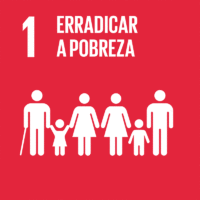Ciência_Iscte
Publicações
Descrição Detalhada da Publicação
Towards “qualitative growth” - oriented collective action frameworks: articulating Commons and Solidarity Economy
3rd EMES-Polanyi International Seminar
Ano (publicação definitiva)
2018
Língua
Inglês
País
Dinamarca
Mais Informação
Web of Science®
Scopus
Esta publicação não está indexada na Scopus
Google Scholar
Esta publicação não está indexada no Overton
Abstract/Resumo
Under what form would a convergence between the Commons and Solidarity Economy movements promote “qualitative growth” (Capra and Henderson 2014) in a way that also ensures equity, justice and participatory democracy in access to resources? What aspects in the predominant organizational forms emerging from these movements need to be addressed in order to make such convergence possible?
This paper is based on an inductive comparative analysis of three major types of commons-based peer production (CBPP): An ecovillage, an “integral cooperative” and a self-identified commercialization-based solidarity economy network. Benkler (2006) defines CBPP as a modular form of socioeconomic production in which large numbers of people work cooperatively over any type of commons. The case studies were chosen due to the fact of being leading agents whose practices are reproduced within three of the largest and most significant international social movement networks operating in the fields of the Commons and Social Solidarity Economy. They also represent three infrastructure types of “new commons”:
a) Tamera, an ecovillage founded in 1995 in southwestern Portugal, which applies regenerative ecology and community-building to the development of a “foundational economy” (Conaty 2015), meaning the infrastructures that sustain everyday life (i.e. food, water, energy, housing);
b) Cooperativa Integral Catalana, an “integral cooperative” founded in 2010 in Catalonia. It defines itself a governance system that combines information technologies and face-to-face assemblies in the promotion of a network management system for economic activities;
c) Esperança-Cooesperança, an urban commons-based commercialization network based on Solidarity Economy principles and goals, based in the town of Santa Maria, in the heartland of the southern Brazilian state of Rio Grande do Sul. It was founded in 1985 with the support of pre-existing Ecclesial Base Communities, as well as Caritas Brazil.
These case studies also represent attempts at developing respectively an alternative political ecology, an alternative political institutionality and an alternative political economy. Each of them was the object of four months of fieldwork, carried out between 2015 and 2017.
Agradecimentos/Acknowledgements
--
Palavras-chave
Registos de financiamentos
| Referência de financiamento | Entidade Financiadora |
|---|---|
| UID/CPO/03122/2013 | Fundação para a Ciência e a Tecnologia |
| SFRH/BPD/94495/2013 | Fundação para a Ciência e a Tecnologia |
Contribuições para os Objetivos do Desenvolvimento Sustentável das Nações Unidas
Com o objetivo de aumentar a investigação direcionada para o cumprimento dos Objetivos do Desenvolvimento Sustentável para 2030 das Nações Unidas, é disponibilizada no Ciência_Iscte a possibilidade de associação, quando aplicável, dos artigos científicos aos Objetivos do Desenvolvimento Sustentável. Estes são os Objetivos do Desenvolvimento Sustentável identificados pelo(s) autor(es) para esta publicação. Para uma informação detalhada dos Objetivos do Desenvolvimento Sustentável, clique aqui.

 English
English




